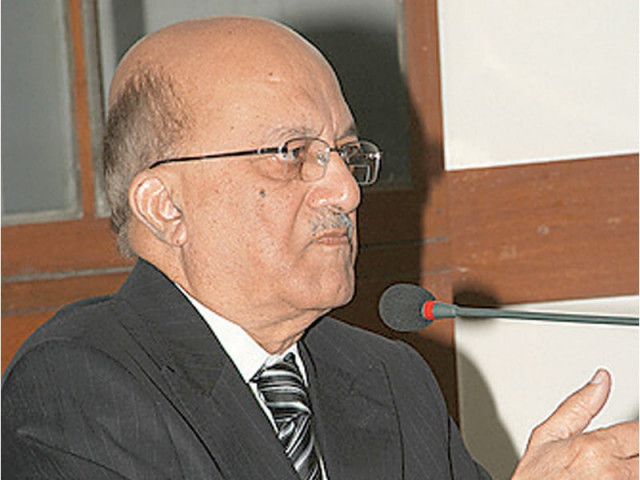‘To keep his memory alive, Iqbal Haider’s work must go on’
Peers and friends shed light on the life and work of the late lawyer and human rights activist.

“He was an upright member of the society and a man of conviction,” said Senator Raza Rabbani. “His principles always came first.”
Rabbani was among those who paid tributes to the late lawyer at a reference programme arranged by the Joint Action Committee Karachi at the Press Club.
Referring to Haider’s effort in fighting for others’ rights, the Senator stressed that such movements need to be kept alive as “that would be the only right way to pay tribute to such a man.”
Mairaj Muhammad Khan, former federal minister and a leader of the Pakistan Peoples Party, requested the attendees to stand in silence for 30 seconds in memory of two legends who passed away recently - Haider and Ardeshir Cowsjee.
According to Khan, Haider was worried about the deteriorating law and order in Karachi and violation of human rights in the name of religion. “He wanted a prosperous Pakistan and a change in the system.”
Khan also spent time in prison with Haider but recalled the late lawyer as a bold man who never broke down during his time. “Once I asked him about love and his only answer was his wife - Guddo.”
Justice (retd) Nasir Aslam Zahid touched upon his time spent with Haider as a young boy. “I wonder how I’ll spend my days without him as we knew each other as kids and were in touch almost daily,” he said. “He fought several cases without taking even a penny and fought with all his power. Haider was true to his profession - Pakistan still exists because of people like him.”

Referring to the famous case of Shaista Almani, social activist Anees Haroon shared how he fought relentlessly for her rights, adding that Almani’s first baby was named by Haider. “One of his greatest contributions was fighting against honour killings.”
Haroon noted that it would not be easy to fill the gap left by Haider, adding that continuing his work is the way to keep him alive.
Urdu poetess Kishwar Naheed read out a poem which she said was one of Haider’s favourites. “Who will now push me to write more?”
Having spent almost 40 years with Haider, Karamat Ali of the Pakistan Institute of Labour Education and Research spoke of his nature, vision, struggle and the respect he received - not only in Pakistan but also in India. “He played a big role in making sure that the fishermen who were held captive by the two neighboring countries returned home,” he said.
Chairperson of the Human Rights Commission of Pakistan, Zohra Yusuf, lauded him for this long-standing commitment to human rights. “There are some issues which cannot be tackled easily but he was struggled without fear or intimidation.”
Christian leader Dr James Shera, Chief Election Commissioner of Pakistan Fakhuruddin G Ibrahim and Manisha Gupta, were among those who sent messages from the United Kingdom, Pakistan and India.
Published in The Express Tribune, December 7th, 2012.


















COMMENTS
Comments are moderated and generally will be posted if they are on-topic and not abusive.
For more information, please see our Comments FAQ